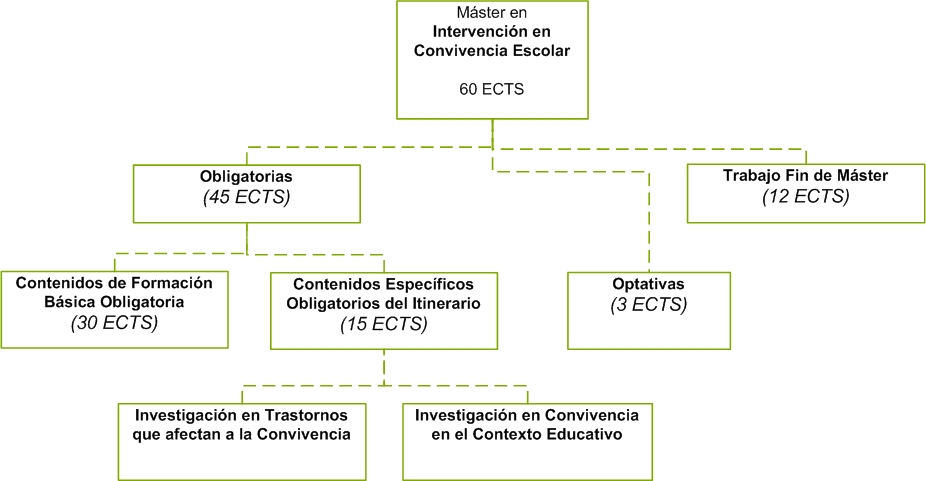Structure and distribution of credits
{{pre.error[0].message}}
{{pre.error[0].message}}
| Course | Basic | Mandatory | Optatives | Curricular internships | End of Studies Dissertation | Total |
|---|---|---|---|---|---|---|
| {{curso}}º | {{c.credects}} | {{c.credects}} | {{c.credects}} | {{c.credects}} | {{c.credects}} | {{creditos | map: 'credects' | toArray | sum}} |
| Total | {{ct.credects}} | {{ct.credects}} | {{ct.credects}} | {{ct.credects}} | {{ct.credects}} | {{cre.creditos_totales | map: 'credects' | toArray | sum}} |
The proposed master's degree has two common modules: Compulsory Basic Training Contents (30 ECTS) and Master's Thesis (12 ECTS), and two specific modules/pathways: “Research on Disorders affecting Coexistence” (15 ECTS) and “Research on Coexistence in the Educational Context” (15 ECTS). Students must take: the two common modules, choosing a pathway and an elective subject from the non-chosen pathway, to add 60 ETCS.
